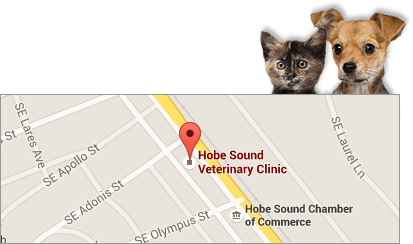Did you know that your canine companion can get the flu? In fact, there’s an outbreak going on now. Fido’s version, canine influenza virus (CIV)–also often called the dog flu—is an influenza A virus. There are several strains, but the two that are most common in the US are H3N8 and H3N2. These strains are both extremely contagious, and are the culprits behind the current outbreak. A local vet offers some information on this below.
Symptoms
If Fido gets the flu, he’ll likely have many of the same symptoms as you would, such as coughing, nasal discharge, fever, lethargy, and reduced appetite. Of these, coughing is the most common. It may also be the most persistent. That said, our furry friends all react differently to the flu. Some pups will not show any symptoms at all. Other dogs may bounce back after a few days, or stay sick for weeks. A few will become severely ill. In rare cases, dog flu can be fatal. Senior dogs and pooches with chronic illnesses and/or immune deficiencies are at highest risk.
Spread
Fido’s flu can spread extremely quickly. The virus is transmitted through droplets of saliva, and can remain active in respiratory droplets on surfaces for several hours. Pups can easily contract it through shared toys or dishes. Fido could also get sick by greeting or nose-booping another pooch, or even just by sniffing a stick at a park that a sick dog played with hours ago.
Dogs that have contracted the flu remain contagious for about a month. As one can imagine, places like dog parks, daycares, grooming salons, and kennels can quickly become hotspots of contagion. Another potential source of spread? People! Someone who pets an infected dog and then a healthy one may quickly spread the illness from pooch to pooch. Be aware of the risks when taking Fido to different places. You can also track the current outbreak online here.
Treatment
Unfortunately, there is no cure for the canine flu. In most cases, dogs recover on their own, though they may need some extra TLC. You’ll need to keep your furry pal comfy and hydrated, and monitor him carefully. If you know or suspect that your pup has the flu, reach out to your vet and ask for specific care tips.
Our Advice on Canine Flu in 2024
What is canine flu (CIV)?
Canine influenza virus (CIV), also known as dog flu, is an influenza A virus affecting dogs. The two most common strains in the US are H3N8 and H3N2, both highly contagious and responsible for outbreaks among canine populations. CIV can cause symptoms similar to human flu, including coughing, nasal discharge, fever, lethargy, and reduced appetite. While some dogs may show no symptoms, others can become severely ill, and in rare cases, the infection can be fatal. The virus spreads through direct contact, contaminated surfaces, and respiratory droplets.
How contagious is canine flu?
Canine flu is extremely contagious among dogs. It spreads rapidly through droplets of saliva, respiratory droplets on surfaces, and direct contact, such as shared toys or dishes, and even through interactions like nose-booping or sniffing areas contaminated by an infected dog. Given its high transmissibility, environments where dogs congregate, including dog parks, daycares, grooming salons, and kennels, can quickly become outbreak zones. Dogs infected with the flu remain contagious for about a month, highlighting the importance of vigilant hygiene and isolation practices to prevent spread. If concerned about an outbreak, our clinic in Hobe Sound, FL, is here to offer advice and support.
Is there a vaccine for canine flu?
Yes, vaccines are available for the canine influenza virus (CIV), specifically targeting the H3N8 and H3N2 strains, the most common in the United States. These vaccines are designed to reduce the severity and duration of the disease and to decrease the spread of the virus. Vaccination might be recommended for dogs at high risk of exposure, such as those frequently visiting dog parks, boarding kennels, or grooming salons. Consultation with a veterinarian is essential to discuss whether vaccination is appropriate for your dog, considering their lifestyle and overall health. Our clinic in Hobe Sound, FL, can provide further guidance and administer the vaccine if needed.
How long is the incubation period for canine flu?
The incubation period for canine influenza, the time from exposure to the virus to the onset of symptoms, is typically 2 to 4 days. During this period, dogs may not show any signs of illness but can still be highly contagious to other dogs. Recognizing the incubation period is crucial for preventing the spread of the virus, especially in environments where dogs interact closely. Owners should monitor their pets closely for symptoms of the flu, particularly after exposure to other dogs, and seek veterinary advice if illness is suspected.
How do you clean and disinfect your home if your dog has had canine flu?
If your dog has had canine flu, thoroughly clean and disinfect your home to prevent the virus from spreading. Use a disinfectant approved for killing viruses on surfaces your dog frequently contacts, such as floors, pet beds, toys, and food and water dishes. Wash bedding and removable fabric covers in hot water and detergent. Regularly disinfect your hands after handling your dog or their belongings. Ventilate your home well to reduce airborne particles. Always follow the disinfectant manufacturer’s instructions for safe and effective use. These steps help minimize the risk of reinfection or spreading the virus to other dogs.
Do you have questions about your pet’s health or care? We’re here to help! Contact us, your local animal clinic in Hobe Sound, FL!




